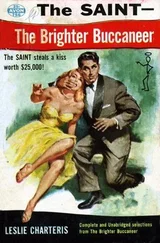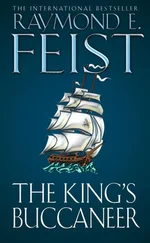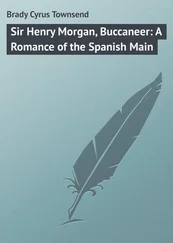Rolf Boldrewood - A Modern Buccaneer
Здесь есть возможность читать онлайн «Rolf Boldrewood - A Modern Buccaneer» — ознакомительный отрывок электронной книги совершенно бесплатно, а после прочтения отрывка купить полную версию. В некоторых случаях можно слушать аудио, скачать через торрент в формате fb2 и присутствует краткое содержание. ISBN: , Жанр: foreign_antique, foreign_prose, на английском языке. Описание произведения, (предисловие) а так же отзывы посетителей доступны на портале библиотеки ЛибКат.
- Название:A Modern Buccaneer
- Автор:
- Жанр:
- Год:неизвестен
- ISBN:http://www.gutenberg.org/ebooks/35431
- Рейтинг книги:3 / 5. Голосов: 1
-
Избранное:Добавить в избранное
- Отзывы:
-
Ваша оценка:
- 60
- 1
- 2
- 3
- 4
- 5
A Modern Buccaneer: краткое содержание, описание и аннотация
Предлагаем к чтению аннотацию, описание, краткое содержание или предисловие (зависит от того, что написал сам автор книги «A Modern Buccaneer»). Если вы не нашли необходимую информацию о книге — напишите в комментариях, мы постараемся отыскать её.
A Modern Buccaneer — читать онлайн ознакомительный отрывок
Ниже представлен текст книги, разбитый по страницам. Система сохранения места последней прочитанной страницы, позволяет с удобством читать онлайн бесплатно книгу «A Modern Buccaneer», без необходимости каждый раз заново искать на чём Вы остановились. Поставьте закладку, и сможете в любой момент перейти на страницу, на которой закончили чтение.
Интервал:
Закладка:
The old vessel was launched at last, and, to the manifest surprise of everybody, refrained from springing a leak. Things might easily have been worse; for what with the great age of her timber and the thickness of her hull the carpenters were barely able to make the copper hold.
Next day we took in our stores. I was surprised at the casks of beef, tins of biscuits, and quantities of other provisions put on board, and thought the owners extremely liberal. This favourable state of feeling lasted till we were well at sea, when I discovered all the beef to be bad, and the remainder of the stores unfit for any well-brought-up pig. When everything was aboard the owners gave me the following document: —
Apia, 3rd December, 187_ .Dear Sir, – You will proceed to Millé, Mulgrave Island, for the purpose of selling the ketch E. A. Wilson . You will find Captain Hayston there waiting for you; so you will please consult with him, as he is acquainted with the parties who wish to purchase her. Try to obtain oil and copra to the amount of £500 for the vessel. Ship whatever produce you may get on board the Leonora , and get Captain Hayston to sign bills of lading. Do not sell the chronometer unless you get a good price for it. Sell the few things you take to the best advantage; none of the Samoans are to remain, but must come back to Apia. Have the ketch painted on your arrival at Millé. Wishing you a prosperous and speedy voyage. – We are, etc.,
Bascom & Co.I quote this letter in extenso , for later on it plays an important part in my narrative. Having carefully read it Mr. Bascom shook hands with me, wished me a pleasant voyage, and departed. I went aboard, the vessel being already hove short, and, as I thought, only waiting my arrival to sail.
Things looked much otherwise as I stepped on deck. The skipper was drunk and helpless. The decks were thronged with shore natives – men and women nearly all crying and half drunk, bidding farewell to one or other of the crew.
The mate, Jim Knowles, was a Tongan half-caste, who was afterwards hanged in Fiji for shooting Larsen, one of the Messrs. Goddeffroy's captains, dead on his own ship. He was the only sober man on board. He told me that one of Tapoleni's friends had come on board, and that she had been stowed away by that worthy, who swore that he would not leave her behind. To this Maa Maa I had a particular aversion, and always hated to see her come on board. She was ugly enough in all conscience, and had always been said to be the cause of quarrels and fights whenever the skipper took her on a trip. Taking Knowles with me, we lugged her on deck screaming and biting. As she refused to get into a canoe, Knowles threw her overboard, where some sympathising friends picked her up.
Just as this incident terminated I received a note from the owners, telling me to delay the vessel's departure for half-an-hour. Wondering what was in the wind, I set about restoring order. I found a lot of liquor in the foc'sle, which I took aft and locked up. Then with Knowles' aid I succeeded in clearing the decks of the women and shore loafers, who were lying about in all stages of intoxication.
At eleven o'clock we saw two boats pulling off from the shore, and noticed armed Samoans among the crews. As they came alongside I saw seated in one of them the figures of Black Tom and his son Johnny, both heavily ironed. In the stern sat his Samoan wife, a woman named Musia. A number of white residents were in charge of the lot, and I was informed that at an impromptu mass meeting, held that morning, it had been decided to expatriate Tom and his family for the good of the country; they had seized this favourable opportunity of carrying their resolution into effect.
This was a pretty state of affairs. I need scarcely explain my indignation at having two such characters as Black Tom and his son foisted on me as passengers. I was about to get into a boat and let them carry their own prisoners away, when I was told that I could land him and his family at the first land we made. This would be Quiros Island, bearing N.N.W. from Apia.
"All right, gentlemen," I replied, "and as everybody here happens to be drunk, I'll feel obliged if you will be good enough to lift the anchor and let us get away."
Tom and his family were accordingly put in the hold, and the new-comers having got the anchor up bade me farewell, chuckling at having rid themselves of Black Tom so cleverly. Whereupon they got into the boats and pulled ashore.
It was blowing stiffly as we ran through the passage, and certainly we presented a pretty spectacle, with our running gear all in disorder, and the crew drunk in the lee scuppers. I had the keys of the prisoners' irons, so giving the tiller to Knowles, I went below and liberated them.
"Tom," I said, "my instructions are to keep you in irons till we made the first land. Now, I've got nothing against you, but I don't want your company, and I consider I was served a shabby trick when they put you on board. I mean to be even with them. They said the first land. Now, I'll stand on this tack till midnight; then I'll put about and land you on the coast."
The negro's bloodshot eyes showed blind fury when I first approached him, but his look softened as I spoke. He laughed, evidently enjoying my suggestion.
"Thank you, sir, for taking the bracelets off us, but I don't care about landing in Samoa again, and I'll face the voyage with you. You're the first man that's spoke a kind word to me since I was rushed and tied in my own house – treated like a wild beast, and, by – ! I'll do any mortal thing in this world for you."
He then begged me not to land him at Quiros, but to let him remain on board until we met Captain Hayston who, he was sure, would give him a trading station. I promised him this, and in return, being a splendid cook, he provided me during the remainder of the voyage with all sorts of sea delicacies.
I will not speak of the dangers of that wearisome voyage; the drunkenness that I tried in vain to suppress; the erratic course we made to our destination. The skipper sobered up every two or three days, took the sun, worked out the ship's position, and let me steer any course I liked. Then he would fly to his bottle of "square-face," until I thought it necessary to rouse him again in order to ascertain our whereabouts. At last, after a forty-two days' passage, we sighted the low-lying coral islands enclosing the spacious lagoon of Millé.
CHAPTER V
THE BRIG LEONORA
The island of Millé is situated in the Radac or eastern portion of the Marshall group, discovered by a captain of that name in 1788. On the charts it bears the name of the Mulgrave Lagoon, and the reason is not far to seek. For the most part the islands of Polynesia are of volcanic origin, whilst the lagoons, which sometimes pass for islands, are exclusively of coral formation. The minute insects which form them build their submarine wall in a circle, which growing for ages, until it rises at low water above sea-level, gradually collects sand and debris, when it decomposes and becomes a solid. Then comes a day when wandering cocoa-nuts float to it and take up their abode on its shores. Gradually a ring of land is formed, varying in width, covered with a wreath of palms, sheltering within its circumference a peaceful sea, into which access is attainable by scattered channels only.
The spot we had reached was of this description.
Day was breaking when we first sighted the tops of the cocoa-palms, and putting the ketch dead before the wind we ran down to the passage. On going aloft I was glad to see the spars of a vessel showing about three miles distant. As none of the crew had ever visited the place before, we lay to and fired a gun. In about half-an-hour we saw a boat pulling towards us, with a tall man standing up steering. It was Hayston. Jumping aboard he shook me warmly by the hand, and said, "So you see we've met again! What sort of passage did you have?"
Читать дальшеИнтервал:
Закладка:
Похожие книги на «A Modern Buccaneer»
Представляем Вашему вниманию похожие книги на «A Modern Buccaneer» списком для выбора. Мы отобрали схожую по названию и смыслу литературу в надежде предоставить читателям больше вариантов отыскать новые, интересные, ещё непрочитанные произведения.
Обсуждение, отзывы о книге «A Modern Buccaneer» и просто собственные мнения читателей. Оставьте ваши комментарии, напишите, что Вы думаете о произведении, его смысле или главных героях. Укажите что конкретно понравилось, а что нет, и почему Вы так считаете.












